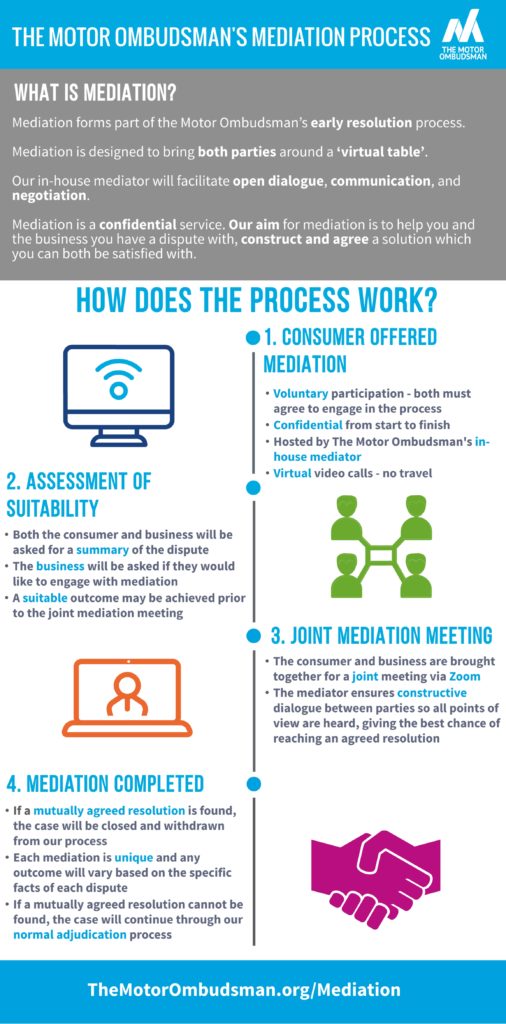Mediation (4 Articles)
Back to Knowledge HubIs taking part in mediation compulsory for the resolution of a dispute?
No, mediation is entirely voluntary for a business or consumer to take part in the process. For mediation to occur, both parties must agree to a collaborative meeting hosted by The Motor Ombudsman.
Should either party decline the use of mediation, this will not prejudice them in any way should the dispute go to adjudication.
Is the mediation process in-house at The Motor Ombudsman?
Yes, the entire mediation process is in-house (i.e. it is not outsourced to an external organisation), and is overseen by a qualified and fully impartial mediator.
You can find out more about The Motor Ombudsman’s in-house mediation process here.
Why was mediation introduced by The Motor Ombudsman as part of its early resolution process?
Early resolution, where an issue can be settled between two parties outside of adjudication, has always formed part of The Motor Ombudsman’s dispute resolution service.
Mediation was introduced by The Motor Ombudsman to enhance and evolve the early resolution process by giving both parties the space to talk and work through what has happened to try to reach a mutually agreed solution.
It also provides an alternative to The Motor Ombudsman reaching a decision based on written documentation and evidence, thereby empowering the consumer and the accredited business to reach flexible and amicable outcomes.
What is mediation?
The process of mediation is where an impartial person or organisation, such as The Motor Ombudsman, brings together two parties (e.g. a consumer and business) to facilitate open dialogue, communication and negotiation in order to reach a jointly agreed resolution to a complaint.
Our in-house mediation service is entirely confidential from beginning to end. Our aim is to help you and the business you have a dispute with, construct and mutually agree a satisfactory solution.
